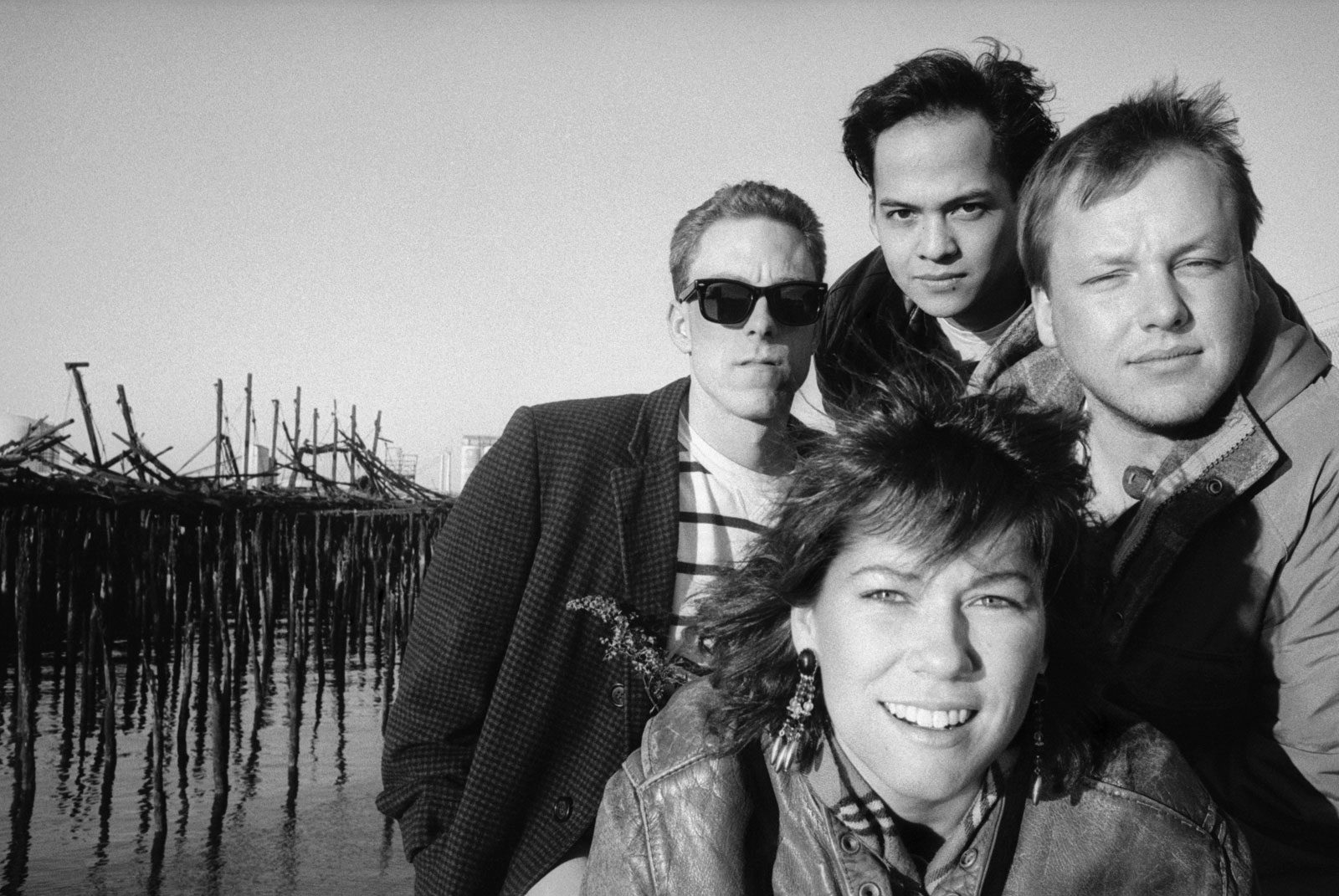
 The last year or so has seen a number of legacy bands returning, whether they were making new albums and EPs or just going on tour. The Pixies. Boards of Canada. Mazzy Star. My Bloody Valentine. David Bowie. Neutral Milk Hotel. The Breeders. Not even necessarily confined to indie rock, both Wu Tang Clan and Lauryn Hill returned to the forefront of the musical scene in some form. OutKast seems like the latest duo to join the ranks of reawakening and there’s more than I’ve even mentioned here. The return of these legendary acts felt exciting at first, then a little overwhelming, and finally, predictable. We watched them struggle to adapt to the digital world of Twitter and Youtube streams, festival headlining slots and internet backlash. It felt disorienting to see a band like The Pixies—who most already consider an established part of the indie rock canon—go through petty band changes and lackluster EPs. Certainly not all of the artists disappointed in their return, but often the question went deeper than whether the new album, song or tour was successful or not. Rather, the reemergence begs the question: why now? What is the intent? Do these artists really feel they are adding to their legacies, or are these returns based on financial concerns? In some cases, it seems that the latter might be the primary motivation.
The last year or so has seen a number of legacy bands returning, whether they were making new albums and EPs or just going on tour. The Pixies. Boards of Canada. Mazzy Star. My Bloody Valentine. David Bowie. Neutral Milk Hotel. The Breeders. Not even necessarily confined to indie rock, both Wu Tang Clan and Lauryn Hill returned to the forefront of the musical scene in some form. OutKast seems like the latest duo to join the ranks of reawakening and there’s more than I’ve even mentioned here. The return of these legendary acts felt exciting at first, then a little overwhelming, and finally, predictable. We watched them struggle to adapt to the digital world of Twitter and Youtube streams, festival headlining slots and internet backlash. It felt disorienting to see a band like The Pixies—who most already consider an established part of the indie rock canon—go through petty band changes and lackluster EPs. Certainly not all of the artists disappointed in their return, but often the question went deeper than whether the new album, song or tour was successful or not. Rather, the reemergence begs the question: why now? What is the intent? Do these artists really feel they are adding to their legacies, or are these returns based on financial concerns? In some cases, it seems that the latter might be the primary motivation.
Some music attains critical and commercial success in one fell swoop, setting a bar for the sound of an era, and decisively changing music itself. Artists like David Bowie and My Bloody Valentine certainly fit this mold, as do Wu Tang, The Pixies and Mazzy Star. It’s not just that these artists were great and beloved by their fans, it’s that their effects are being seen, felt and heard, even now a decade or more later. The impeachable nature of a band like My Bloody Valentine feels precarious when a new album comes out—will it hold up? Will they maintain the myth? The ways in which legacy artists challenge their own reputation by releasing new material is fascinating, especially given the factors that have changed the way we consume music. For example, mbv wasn’t eligible for the Mercury Prize because the group chose to put it out independently—James Blake’s album garnered the award. Or, how about the fact that David Bowie’s album elicited barely a scratch from critical pens, while Arcade Fire’s triumphant Reflektor can be found in the top tier of nearly every year-end list? When The Miseducation of Lauryn Hill came out, there was no Tink or Rapsody—and no Nicki Minaj or rhyme-spitting Yoncé either. These newer artists might just interest us more at this point, partially because they’ve built on the foundation that Hill herself laid. In a way, she’s fallen behind these emerging artists due to the doors she herself opened, and where newer artists have gone from there.
It says something, too, about our attention span that the news of these artists return often trumped our actual interaction with their art. How many people gave the new Mazzy Star album a proper chance? Did it even matter at this point? The artist who raised the most eyebrows in their return was probably The Pixies. Not only were their new EPs rather banal, but the fact that founding member Kim Deal wasn’t involved, and that they kicked their replacement bassist (also named Kim) out of the band created a situation fraught with drama and embarrassment. Was this really the band that helped shape the indie rock canon? It’s in situations like this that great bands sometimes tarnish their place in our hearts by trying to stretch their relevance into ungainly lengths. Or is it that we’d rather have the drama than the new music? The idea of a new David Bowie album interests us, but not the effort it takes to delved into it. We’ve been craving Neutral Milk Hotel’s return for what feels like eons, but when we get it, it feels more like a let down than a victory.
Seminal artists—and the art they make—have their place in a specific time and rarely can they make the jump forward to continue their legacy after so many years. As new artist build on the sonics and precepts of stalwarts like The Breeders and Boards of Canada, they do become more intriguing to us than their forerunners. And when legends come to life in our own time, sometimes their reality, their very humanity ruins the magic patina that age and our reverence have coated them with. Will hearing In the Aeroplane Over the Sea live really make me love it more, or will it ruin the larger-than-life presence that album had over my adolescence? So when OutKast goes on tour this year, I won’t be going to see them—I can’t fully believe they’re doing it for anything other than the money Same goes for The Pixies and Neutral Milk Hotel. I can’t take the chance that I’ll lose their magic, even if they have.
Besides, it’s 2014 and I’m more interested in watching Chance the Rapper and Vic Mensa. It’s their time.




